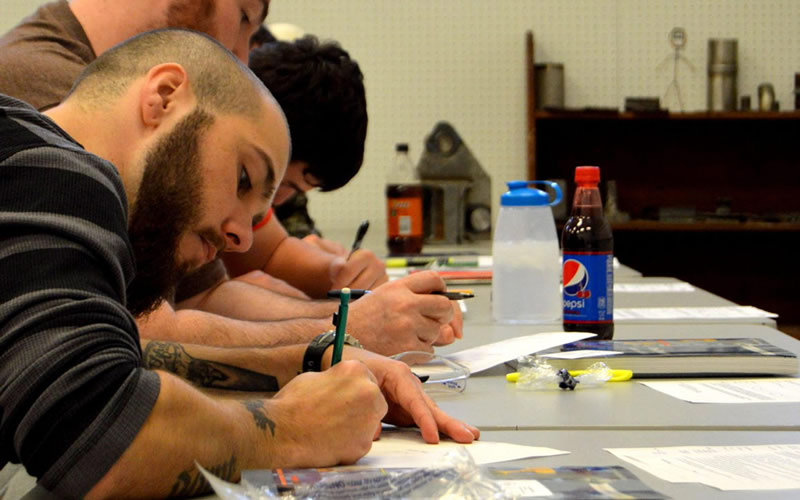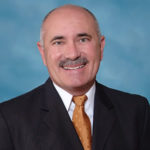
By Lindsay Street, Statehouse correspondent | High school graduates of some of the state’s poorest school districts now can acquire a technical certificate or two-year associate degree for free thanks to a provision in the state’s new budget.
The expanded S.C. Promise Scholarship pilot program offers tuition assistance and book purchases up to $2,000 at any of the state’s technical colleges, after a student has already obtained any other scholarships available. This expanded scholarship aid is available to any students who have graduated in the last six years from one of 34 mostly rural, poor school districts in South Carolina.
“It’s a good start particularly for those students who may not otherwise have an opportunity to go to a technical college,” said S.C. Rep. Terry Alexander, D-Florence. Florence County, has five school districts where graduates will benefit from the program. “I think it gives those communities some level of hope and possibilities that otherwise would not have been there.”
Lawmakers tucked the expanded program into the state’s lottery spending inside the state appropriation bill, paying for the $3.9 million expense via surplus funds.
A growing trend
There are 16 states that offer a promise scholarship program. Those states include Tennessee, New York, Montana and Oregon.
Tennessee’s program is often cited as a lead example for many other states since it was one of the first. The Republican-majority state rolled out the program in an effort to make 55 percent of its workforce have higher education. Tennessee is using an endowment from its lottery to pay for it, according to American Association of State Colleges and Universities Director of State Relations and Policy Analysis Tom Harnisch.
“Promise scholarships are growing throughout the country,” Harnisch told Statehouse Report. “The interest from lawmakers is rooted in the problems of college affordability and concerns over student debt … (And) lawmakers are very interested in promise programs because of the need to transform the state into a knowledge based workforce. In the future, a larger share of jobs are going to require some form of a post-high school education.”
In South Carolina, there are several local promise programs. For example, at Central Carolina Technical College in Sumter, four counties have funded the first two years of school for high school graduates since 2014.
Tim Hardee headed the school as the program was first implemented. Now, he’s heads the state’s 16 technical schools at the S.C. Technical College System.
Promise program advocate Martha Kanter of the Washington-based College Promise Campaign has touted the success of such programs.
“These successes of the growing College Promise movement lead the way for other communities to build a college-going culture and keep college affordable,” said Kanter in a February press release. She is the executive director of the College Promise Campaign and former U.S. undersecretary of education in the Obama administration. “Communities and states are leading the way to create opportunity for their citizens and to build the educated workforce that employers need.”

Last year, the state implemented its first pilot promise program in Williamsburg County. Hardee said Williamsburg Technical College, which previously received 15 percent of the county’s high school graduates, received 30 percent of the county’s high school graduates under the program.
“What we were able to go back to the legislature with was that the pilot program was very successful,” Hardee said.
After the pilot proved successful, the question became how to expand the program beyond Williamsburg County. An estimate earlier this year pegged statewide implementation of the program at $76 million. A statewide rollout was ruled out due to the price tag, Alexander said.
Other ideas floated were expanding the program to a single region or perhaps to the state’s poorest school districts. But eventually, lawmakers landed on expanding the program to the 34 school districts that sued the state more than 20 years ago over inadequate and unequal K-12 education funding.
Known as the Abbeville plaintiffs, those school districts lean rural and tend to lag behind the state in economic development activity. The idea behind offering the expanded pilot program to those districts is to help students attain a higher education and help the region attract more industry, Hardee said.
“A lot of those areas have not a lot of accessibility to higher education, and economic development is tough because they don’t have an educated workforce,” Hardee said.
Message or money

Almost $4 million in new scholarship money will go a long way because it is need-based and will reach more students who are struggling financially, Hardee said.
While much of the nation has only a quarter of its scholarships as merit-based, South Carolina spends only 22 percent of its scholarships money — or about $65 million — on needs-based scholarships.
“South Carolina has invested heavily in merit-based scholarships and not as much in need-based scholarships and this is more need-based,” Hardee said.
But Harnisch said promise programs often don’t help poor students very much, especially programs like Tennessee’s and South Carolina’s where it only covers tuition and books, and not living expenses. Harnisch also said many of the state’s poorest students already can get drastically reduced tuition — if not free tuition — through federal and state scholarships.
“In some cases, low-income students will not see any new benefits,” Harnisch said. “It’s regressive in some ways.”
But, he said, the message of free higher education is powerful.
“Some students may feel like college isn’t for them because they didn’t come from a wealthy family but when they hear the words ‘free tuition’ that can start a conversation and lead them to pursue a higher education,” Harnisch said. “The money might be considered regressive but the message is very powerful.”
Additionally, the program itself likely won’t help alleviate educational disparities for children in those school districts, according to an attorney who represented the Abbeville plaintiffs.
“It’s heartening, maybe, that they are trying to help children in those areas, but I wish they would pay as much attention to the 3K-through-12 school system that they are not fixing,” said Columbia attorney Laura Callaway Hart. “Unless they do, they’re not going to have children who are equipped to go to technical schools … They’re not tackling that problem head on; they’re still playing with it around the edges.”
Alexander agreed, though he said the program is worth pursuing.
“We’ll never get there — wherever there is — without 100 percent graduation or schools fully funded,” he said.
Hardee called the expanded program a “good first step.”
“(Legislators are) trying this on a small scale and seeing how successful it is in encouraging people to enroll,” he said. “They will look at the numbers and see if it generated more people getting trained and enrolling and I think, at that point, they may consider if it’s something worthy of expanding.”
Alexander also said lawmakers are keen on seeing how this expanded pilot works before looking at a statewide implementation.
- Click here to see eligibility requirements and a list of school districts where graduates are eligible for the expanded Promise Scholarship.
- Have a comment? Send to: feedback@statehousereport.com














 We Can Do Better, South Carolina!
We Can Do Better, South Carolina!